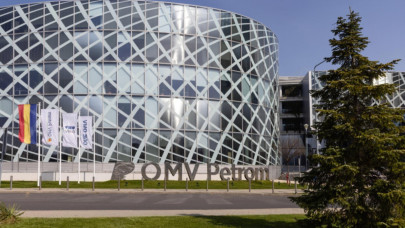In recent years, the Fast-Moving Consumer Goods (FMCG) sector has witnessed a significant recognition of its environmental impact. It encompasses a wide range of products that are consumed daily, including food, beverages, personal care items, and household goods. The industry's extensive production and distribution networks have contributed to several adverse environmental effects, including greenhouse gas emissions, plastic waste, and resource depletion. Food production alone contributes 25% of global greenhouse gas emissions, without including food waste and deforestation. Improperly managed packaging waste resulting in pollution and CO2 emissions is another key sustainability challenge for FMCG players.
As consumer demands and concerns regarding sustainability continue to rise, businesses around the world are compelled to embrace sustainable innovations in their products and processes to reduce resource use, waste generation, and carbon emissions. We showcase some key examples of global FMCG brands embracing sustainable innovation later in the article.
Some of these innovations are the brainchild of Central and Eastern European entrepreneurs. The CEE innovation ecosystem is an emerging, yet highly effective one, managing to produce tech companies valued at million and even billion-dollar sums with less investment than other ecosystems. One notable focus area revolves around packaging solutions, as companies explore new materials and product usage models. We also notice advancements in protein alternatives that take less carbon and land usage.In this article, we will delve into the diverse sustainability innovations emerging within the FMCG sector of Central and Eastern Europe. In the face of mounting environmental challenges, sustainable innovation in the FMCG sector has the potential to not only reduce the industry's ecological impact but also cultivate consumer trust and drive long-term business success.
Packaging
- Innovation: Mushroom and hemp packaging
- Area of innovation: biodegradable and compostable packaging
- Company: S.Lab
- Based in: Ukraine
The Ukrainian startup S.Lab is using the power of fungi to innovate packaging. Their packaging solutions are based on two plant-based components, mushroom and hemp. Its solution serves as a natural replacement for polystyrene packaging.
- Innovation: Compostable, corn-based packaging foil
- Area of innovation: biodegradable and compostable packaging
- Company: LAM'ON
- Based in: Bulgaria
LAM'ON is another startup from Bulgaria with an innovative solution for the packaging industry. One of their products, PACK'ON, is a biodegradable and fully compostable packaging foil, made of Polylactic Acid (PLA) obtained from corn. The product's polymer threads are biaxially oriented, which makes it more durable than traditional PLA foils. The company has received funding from startup programs to launch its products.
- Innovation: Wool-based transportation boxes for the food industry
- Area of innovation: biodegradable and compostable packaging
- Company: Altaboxa (former WoolaPack)
- Based in: Serbia
The Serbian startup Altaboxa offers an innovative alternative to extruded polystyrene foam for the food industry. They use a rough type of wool that is generally refused by the fashion industry as an insulation liner for the transportation of temperature-sensitive food products. The company claims the product performs as well as styrofoam of the same thickness, at a cheaper price and while being curbside recyclable.
- Innovation: Corn starch-based packaging
- Area of innovation: biodegradable and compostable packaging
- Company: Promateris
- Based in: Romania
Romanian company Promateris is a producer of biodegradable and compostable packaging. The company has transitioned from plastic to bioplastic in the last few years, by investing in the latest technologies and through R&D partnerships. One of their offerings is a cornstarch-based raw material intended for compostable packaging, whose production was financed through a grant of close to 750,000 euro from Innovation Norway.
- Innovation: Sustainable and naturally derived polymers
- Area of innovation: biodegradable and compostable packaging
- Company: PolyXLabs (former Poliloop)
- Based in: Hungary
PolyXlabs is a Hungarian startup that improves the physical and chemical properties of bio-polymers by using sustainable bio-based filler technologies. Their packaging products are suitable for use in the cosmetics and food and beverage industries. They are marine biodegradable, home and industrially compostable, and heat resistant up to 140°C. Our main resource is food waste. So far, the company has raised two rounds of investments from startup programs and venture capital funds.
- Innovation: Edible coffee cups
- Area of innovation: biodegradable and compostable packaging
- Company: Cupffee
- Based in: Bulgaria
Cupffee, a startup based in Bulgaria but already present in markets around the world, is innovating the way people drink coffee with its edible coffee cup. The patent-holding cup is made of cereals and other natural ingredients and can be enjoyed with coffee, much like an ice cream cone. The company is backed by venture capital and has completed partnerships that brought it all the way to Wimbledon, in the hands of the late Queen Elizabeth.
Food
- Innovation: Plant-based meat alternative
- Area of innovation: low-carbon protein alternatives
- Company: Verdino Green Foods
- Based in: Romania
Verdino Green Foods is a food manufacturing company that has quickly become a local market leader for meat alternatives in Romania. They use pea-based proteins to create products such as plant-based fillets, grills, and snacks. They are backed by a growth equity investment and are currently expanding into new plant-based categories and foreign markets.
- Innovation: Plant-based fish alternative
- Area of innovation: low-carbon protein alternatives
- Company: Bluana
- Based in: Romania
Romanian food tech company Bluana brings innovation to sushi lovers, with a plant-based alternative to sashimi, which is generally cooked with tuna or salmon. The vegan fish is obtained from different protein sources including soy, pea, and potato, and using a molecular gastronomy approach. The company has received several prizes and grants from startup competitions.
- Innovation: Plant-based egg alternative
- Area of innovation: low-carbon protein alternatives
- Company: Cultured Foods
- Based in: Poland
Polish company Cultured Foods wants to expand the plant-based revolution to another animal-derived food: eggs. Their veggie egg product contains proprietary LactoSpore® cultures, as well as soy protein, chickpea flour, plant fibres, and chia seeds. Veggs can be used for omelettes, as well as baked goods such as stuffings and dumplings. The products are available across 14 European countries, including Romania, Greece, and Poland.
- Innovation: Nutrient-packed food tablets
- Area of innovation: low-carbon protein alternatives
- Company: Manna Food Solutions
- Based in: Romania
Romania-based Manna Food Solutions revolutionizes food by making nutritious meals more accessible to vulnerable groups in relief areas, military, and space missions. Their ready-to-eat food ODA tablets are designed to replace meals in a personalized way. The tablets can be adapted to age, health conditions, and dietary requirements, to include all the nutrients needed for a particular case.
- Innovation: Insect-based feedstock and pet food
- Area of innovation: low-carbon protein alternatives
- Company: Nasekomo
- Based in: Bulgaria
Bulgarian startup Nasekomo uses black soldier fly larvae to turn food waste into nutrient-rich insect products. Their portfolio includes protein meals for pet food and aquafeed, insect oil, and organic certified insect fertilizer. The company has raised funding through venture capital, debt, and grants.
Personal care
- Innovation: Ingredients from upcycled coffee waste
- Area of innovation: upcycling, natural materials
- Company: Coffe-eco
- Based in: Greece
Coffe-eco stems from the PhD project of the company's co-founder at the University of Patras, in Greece. The team's goal is to increase circularity in the espresso supply chain by upcycling coffee waste into quality raw ingredients for the food and beauty industries. The startup is backed by its partnership with and investment from local coffee brand, Coffee Island.
- Innovation: CBD-infused tampons
- Area of innovation: sustainable hygiene products
- Company: Daye
- Based in: UK, with Bulgarian founder and offices
Daye is a gynaecological health startup that creates CBD-infused tampons, as well as other products for feminine care. The CBD tampons offer additional health care services by acting as a pain reliever. The company partners with Bulgarian company PBD Global to extract CBD from hemp. The company is backed by venture capital funding, having last raised a Series A round.
- Innovation: Reusable menstrual panties
- Area of innovation: sustainable hygiene products
- Company: Libréa
- Based in: Romania
The Romanian company founded by French entrepreneurs innovates feminine hygiene care by offering an alternative reusable product: sustainable period underwear. The Libréa menstrual panties provide an all-in-one solution through a four-layer-sewed material. The company has also introduced a new category of bathing suits using an adapted technology.
Innovations from elsewhere around the world
- Innovation: Refillable systems for laundry, cleaning, and body care
- Area of innovation: reusable packaging
- Company: Everdrop
- Based in: Germany
Germany-based Everdrop is a Certified B-Corporation looking to reduce single-use plastics and unnecessary chemicals, as well as reduce carbon dioxide emissions, in laundry, cleaning, and body care products. For instance, they sell cleaners in reusable rHDPE bottles with separate refills available in small, paper-based packages. The company has been backed by venture capital up to Series B, as well as debt financing.
- Innovation: Seaweed-based polymer
- Area of innovation: biodegradable and compostable packaging
- Company: Searo
- Based in: UK
Searo is an innovative packaging startup from the United Kingdom. Their technology produces a unique, natural polymer made from FDA-approved seaweed ingredients. The polymer is a viable alternative to plastics in food packaging. It can be home-composted and degrades in several weeks, it can also break down naturally in the ocean and is safe to consume by marine life.
- Innovation: polymer based on bacterial cells
- Area of innovation: biodegradable and compostable packaging
- Company: Shellworks
- Based in: UK
UK-based Shellworks is another sustainable packaging company, which uses natural processes and materials for its products. Vivomer, their latest material offering, is made of microorganisms that are often found in marine and soil environments and is home compostable, as well as mass manufacturable. The company addresses its products to the skincare industry for packaging such as jars and tubs. The company has already worked with numerous beauty brands, and it is backed by venture capital.
- Innovation: Biodegradable sanitary pads
- Area of innovation: sustainable hygiene products
- Company: Saathi
- Based in: India
This time coming from India, Saathi is a next-generation FMCG company producing sanitary pads that can safely biodegrade. Their feminine hygiene products are made from bamboo and banana fibres, thus also reducing CO2 emissions from production processes. The company aims to increase access to menstrual products in rural India at an affordable cost and with a lower carbon footprint versus traditional products. The company has raised funding from a startup program.
- Innovation: Cell-based dairy
- Area of innovation: protein alternatives
- Company: Turtle Tree
- Based in: Singapore, US
Singapore-based biotech company Turtle Tree aims to revolutionize food by releasing into the world a sustainably-produced milk protein. The company produces Lactoferrin, an iron-binding protein found naturally in milk, through a scalable, precision fermentation technology. They plan to make lactoferrin available beyond the supplements industry, to everyday food products such as plant-based milk, snacks, and infant and elderly nutrition. The company is backed by venture capital.
- Innovation: Paper-based bottle
- Area of innovation: recyclable packaging
- Company: Coca-Cola
- Based in: US
A while ago, Coca-Cola, a global leader in the beverages market, proposed a prototype for a paper bottle, which, if commercialized, would be the company's biggest product sustainability innovation yet. The first-generation prototype has a paper shell covered with a plastic liner and closed with a plastic cap. The long-term vision, however, is to create a paper bottle that can be fully recycled in the paper stream.
- Innovation: Biodegradable liquor bottle
- Area of innovation: recyclable packaging
- Company: Bacardi
- Based in: Bermuda
Bacardi, the world's largest family-owned spirits company, aims to put a 100% biodegradable spirits bottle on shelves by 2023. The company has been working on the innovation together with Danimer Scientific, a leading developer and manufacturer of biodegradable products. The biopolymer used is derived from canola plant seeds oil and can biodegrade in a wide range of environments, including compost, soil, freshwater and seawater. According to the company, it disappears without leaving behind harmful microplastics after 18 months.
- Innovation: biodegradable and edible packaging for bundling beer packs
- Area of innovation: biodegradable and compostable packaging
- Company: E6PR
- Based in: US
E6PR™ (Eco Six Pack Ring) is the first packaging of its kind, made from fibre by-product waste and other compostable materials as an alternative to plastic rings. US-based Saltwater Brewery announced being the first brewery to use and implement the eco six-pack rings.
- Innovation: Refillable stainless steel case deodorant
- Area of innovation: reusable products
- Company: Dove
- Based in: US
Unilever brand Dove has introduced refillable deodorant as a way to reduce packaging and increase the circularity of its products. The stainless steel deodorant case is designed to last forever. The refills are made from 96% recycled plastic.














